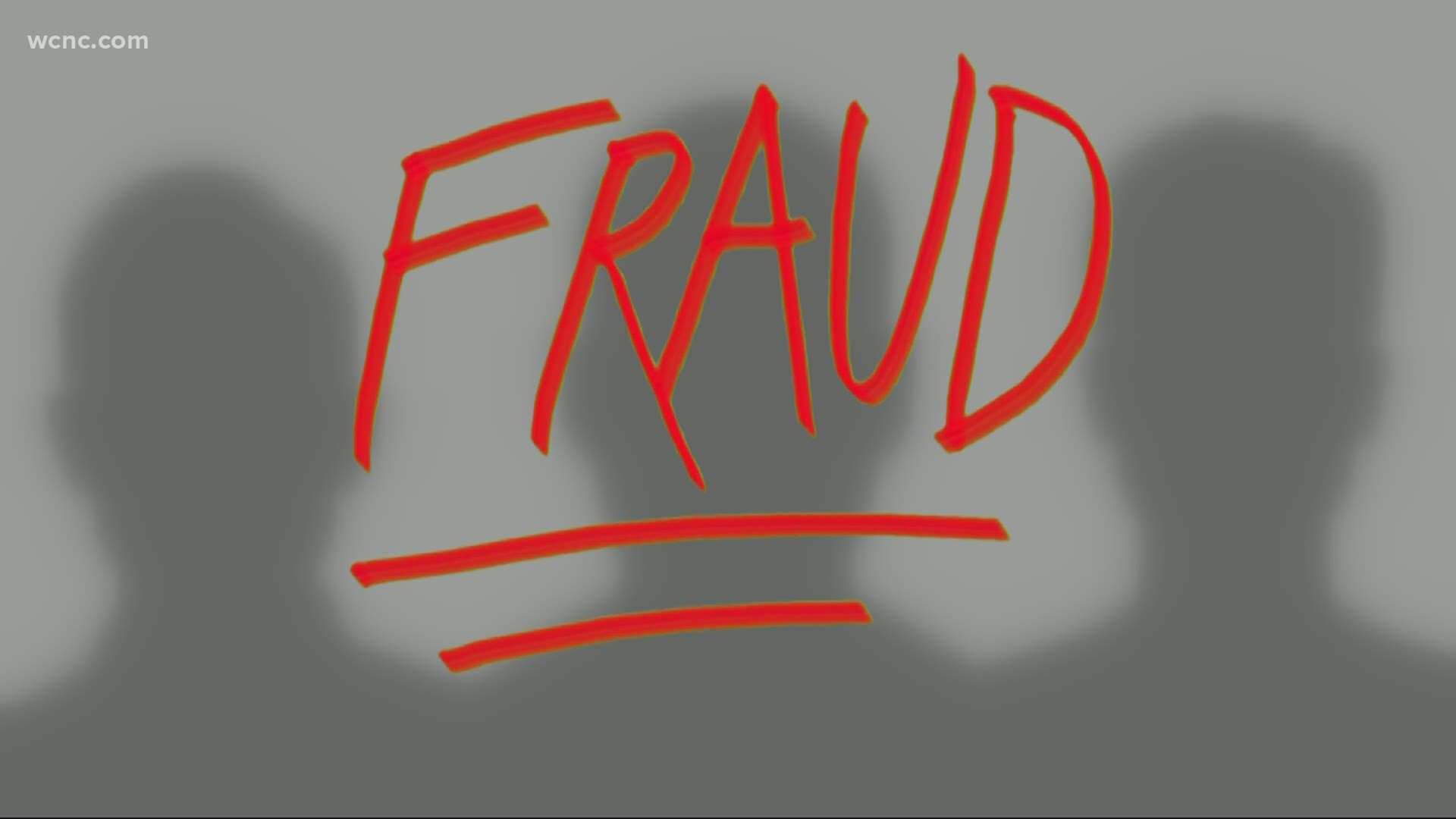CHARLOTTE, N.C. — While struggling North Carolinians waited for their unemployment checks, the Division of Employment Security paid out almost $9 million in jobless benefits to identity thieves and others collected money fraudulently too, including an Indian Trail man.
Federal prosecutors said 51-year-old Joseph Ransome recently pleaded guilty to wire fraud. The U.S. Attorney's Office reports Ransome applied for more than $150,000 in unemployment benefits in multiple states using his own name and social security number.
"For example, Ransome falsely claimed to have been laid off from Walmart in North Carolina due to COVID, when in fact Ransome had been laid off due to misconduct," prosecutors said. "Ransome also falsely claimed prior employment at Target, BestBuy, Lowe's, and Hobby Lobby, and falsely claimed that he had been laid off from some of these companies because he had been diagnosed with COVID or due to lack of work because of the coronavirus when he had never in fact been employed by those companies. As a result of the fraudulent scheme, during the relevant time period, Ransome applied for more than $150,000 in fraudulent UI benefits provided under the expanded CARES Act."
Ransome faces up to 30 years in prison and a $1 million fine, according to prosecutors. His attorney declined comment for this story. Ransome is now the third person from the Charlotte-area to plead guilty in connection to unemployment fraud.
Assistant U.S. Attorney and COVID-19 fraud coordinator Jenny Sugar said criminals are using a variety of methods to steal benefits that don't belong to them.
"We're seeing everything across the board from sophisticated international schemes where the money is going abroad and stopping here in money mules' accounts to individuals, who might have done run-of-the-mill identity theft, and are now using that to file claims since the unemployment benefits are higher now than they have been," Sugar said. "Just last week the prosecution that we had was an individual who used his own name and social security number and just filed in multiple states, so just took advantage of this terrible situation that we are in."
She said the pandemic's helped the cause of criminals who are benefiting from susceptible programs designed to get money out quickly.
"If there is money going out, there are always bad actors willing to cheat the system to get it. We're going to prosecute those people," she said. "It's infuriating. People are suffering, we're in a national crisis, people are out of work, people have lost their jobs, people need money to help with child care and that someone would skip to the front of the line, would use this crisis to line their own pockets when other people need those funds, it's just disgusting and I think that's one of the reasons our office cares about this so much. These are critical funds to help during this pandemic and that people are using this as a way to get rich quick is very, very offensive."
North Carolina Division of Employment Security Assistant Secretary Pryor Gibson acknowledged the agency's fraud prevention challenges during a recent state oversight committee meeting.
DES reports overpayments of nearly $70 million during the first three quarters of 2020 with only $20 million of that recovered. Gibson said those totals are higher during the pandemic because there's increased potential for fraud or misrepresentation with more federal programs in place. He said $45 million of the state's overpayments came from the $600/week Federal Pandemic Unemployment Compensation program.
Gibson told lawmakers DES is monitoring data trends and tips to keep money from getting into the wrong hands.
"We know that we need to work on some aspects of our fraud program..." he said. "...To date, we have verified about $8.8 million in benefits has been paid out to identity theft. These funds are very difficult to recover."
Sugar said fraud is often difficult to trace since money goes directly to bank accounts and debit cards and the thieves spend it quickly.
"You have to move very quickly and unfortunately, white-collar crimes take a long time to investigate," she said.
Despite the challenges, investigators have recovered just under a half-million dollars and with the public's help and the U.S. Attorney's Office commitment, Sugar's convinced this is just the start.
"We're going to keep working on these cases," she said. "We care a great deal about financial fraud and protecting taxpayer dollars and individuals who would take advantage of a fraud scheme are despicable and we're going to keep going after them."
The U.S. Attorney's Office in South Carolina reports prosecutors there have recovered $1.3 million in pandemic-related fraud assets "with a substantial portion" tied to unemployment fraud.
"To date, federal agencies here in South Carolina have identified nearly $12,073,000.00 in pandemic-related fraud losses and have recovered more than $1,373,000.00 in assets," a spokesperson said. "The matters stemming from this investigation also involve at least 645 subjects or suspects connected to the state of South Carolina."
Prosecutors urge people to report COVID-19 fraud by calling the National Center for Disaster Fraud Hotline at (866) 720-5721 or visiting Justice.gov/DisasterComplaintForm

